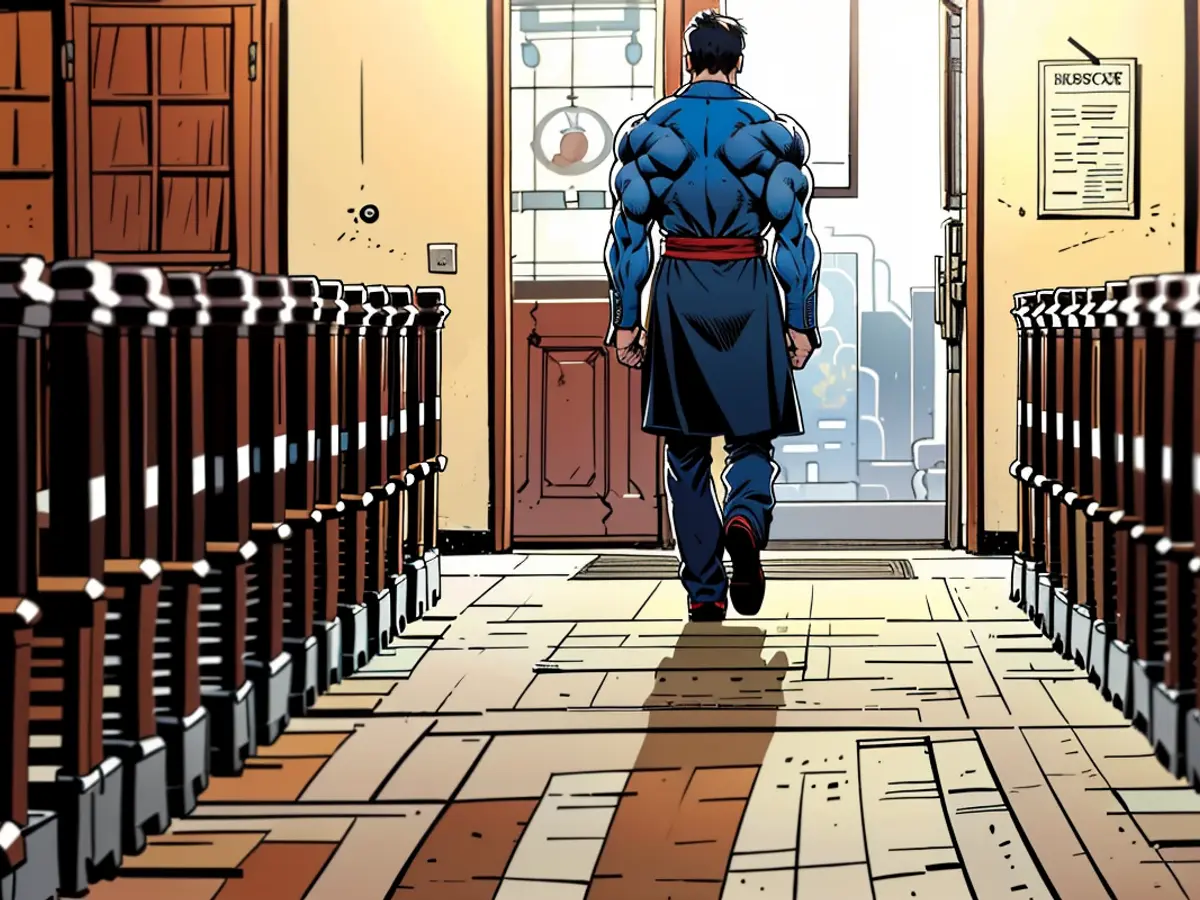Religion - Leaving the church in Bavaria: "Fewer and fewer every year"
In Bavaria, there were 106,663 people who left the Catholic Church in the past year. The German Bishops' Conference (DBK) announced this on Thursday in Bonn. This is significantly fewer than in 2022, when the Catholic Church in the free state recorded a negative record with 153,586 departures. According to church statistics for the year 2023, there are still approximately 5.7 million people in Bavaria who belong to the Catholic Church.
Munich General Vicar "remains optimistic"
The fact that the significant decrease in Catholic membership numbers from 2022, during which the second abuse study for the Archdiocese of Munich and Freising was published, "has not continued in the same way," was described as "optimistic" by Christoph Klingan, the General Vicar of the Archdiocese of Munich and Freising, as he explained - even though every individual departure is painful for the Church. He hopes "that among the faithful in the Archdiocese of Munich and Freising, it will come to the point where the processing of sexual abuse, turning towards the victims, and prevention are central concerns and remain so."
In the territory of the Archdiocese of Munich and Freising, the largest Catholic diocese in Bavaria, 32,874 people left the Catholic Church in 2023. This was 16,155 fewer departures than in 2022. At the same time, the number of churchgoers reportedly increased by 7.5 percent. Therefore, on an average Sunday, approximately 104,917 Catholics participated in services in the Archdiocese - 7,333 more than in 2022.
100,000 fewer Catholics in the Erzbistum Bamberg over the past ten years
In the second largest Catholic diocese in Bavaria, Erzbistum Bamberg, the number of Catholics dropped below 600,000. In comparison to ten years ago, this represents a decrease of 100,000 Catholics (minus 16 percent). Archbishop Herwig Gössl evaluated the numbers as a reflection of a societal development that had been evident for a long time and would fundamentally change the role of the Church. With fewer believers, fewer pastors, and fewer financial resources, the Church would have to find new ways to effectively use the remaining resources, he said in a statement.
Passau Bishop: "We will have fewer and fewer"
"The number of departures from the record year 2022 has significantly decreased in the past year. That's the good news," said Bishop Stefan Oster of Passau. However, the trend continues: "We will have fewer and fewer." Bishop Bertram Meier of Augsburg said, "I mourn for every person who leaves us. But I am happy that the negative trend has been mitigated in the past year."
Nationwide, the exodus from the Catholic Church decreased compared to the record year 2022. 402,694 people left in 2023, compared to over half a million in 2022.
Approximately 380,000 members left the Evangelical Church nationwide in 2023, as the Evangelical Church in Germany (EKD) had already reported in the previous month. This was similar to the number in the previous year.
Church statistics of the DBK 2023
- Despite the decrease in departures from the Catholic Church in Bavaria, Bishop Ludwig Schick of the Diocese of Bamberg, who is also the President of the German Bishops' Conference (DBK), emphasized the importance of addressing the challenges faced by the Church in contemporary society.
- In his annual report at the DBK meeting in Bonn, Bishop Schick called for a renewed commitment to the values of the Catholic Church and advocated for increased dialogue with secular society to better understand and respond to its needs and concerns.
- In Bamberg, the city known for its historic Cathedral and the birthplace of Pope Clement II, the decrease in Catholic membership was particularly pronounced in urban areas, where young people and families were leaving the Church at a higher rate than in rural areas.
- To counter this trend, Bishop Schick urged dioceses across Bavaria and Germany to invest in youth and family ministries, to offer more opportunities for catechesis and faith formation, and to engage with young people in their own language and culture.
- The Bishop of Freising, Stefan Oster, also emphasized the need for the Church to be more welcoming and inclusive, particularly towards LGBTQ+ individuals and families, as a way to attract and retain members.
- As a result of these initiatives, the Church leaders hoped to see a reversal of the current trend of declining membership and to help "rebuild and strengthen the Church as a community of faith and service in Bavaria and beyond."








